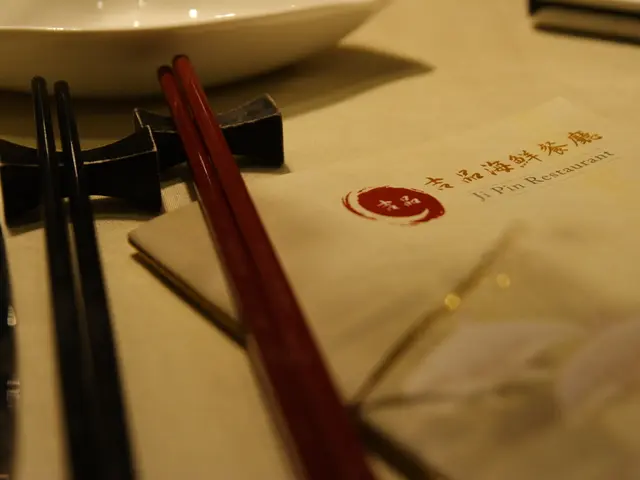Central Bank of China Governor Advocates Unified Asian stance against U.S. Tariffs Imposition
In a bold and decisive step, the Governor of the People's Bank of China is urging Asian economies to unite against the intense pressure from escalating tariffs imposed by the US. This move has sparked heated discussions about the future of international trade and economic diplomacy in the Asia Pacific region. With the US recently ratcheting up tariffs on various imports from major Asian economies, particularly China, the timing for such a call couldn't be more apparent.
As the world recovers from the pandemic and navigates the resulting geopolitical shifts, the People's Bank of China is emphasizing the importance of regional cooperation. The central bank believes that without a cohesive response, the damaging effects of American trade policy will be impossible to mitigate. This stance reflects growing concerns in Beijing that a protectionist agenda is emerging to stifle economic growth across the region. But will Asian economies answer the call?
Why the People's Bank of China is Speaking Up Now
While the People's Bank of China may not be a powerhouse in global finance, it has shown signs of stirring from its slumber as evidenced by its stronger political response to the recent tariff increases by the US. In addition to China's anger over the US's focus on a wide range of imports primarily from Asia, particularly high-tech items and essential raw materials, the bank argues that these tariffs are causing instability in supply chains and increasing inflationary pressures across the region.
How Asian Economies are Responding
Some countries, wary of alienating their largest trading partner, the US, have been hesitant in their responses. However, nations like Malaysia, Indonesia, and Thailand have expressed a desire to discuss multilateral solutions and strategies to minimize the risks of over-dependence on the US.
The conversation has now turned to the possibility of creating a tariff response bloc or strengthening existing economic alliances such as the Regional Comprehensive Economic Partnership (RCEP) as a bulwark against US policies that are becoming increasingly unilateral and disruptive to open trade. While no firm commitments have been made, there seems to be a clear trend toward strategic realignment in the region.
Potential Implications for Global Trade Order
If Asian countries rally behind the People's Bank of China's call, the global trade landscape could undergo a significant transformation. A self-sufficient Asia could fuel de-dollarization trends, bolster internal supply chains, and reduce dependence on unpredictable foreign economic policies. This could prompt the US to reevaluate its policies, especially if it starts facing concerted opposition.
The People's Bank of China's call is also seen as a step toward reshaping the trade order on a global scale. Beijing aims to foster a cooperative trade system based on mutual benefit, rather than competition and protectionism - an attractive narrative for countries seeking to preserve their economic sovereignty.
The Risk of Escalating US-China Trade Tensions
The likelihood of escalation is high. US policymakers are unlikely to welcome any regional alliance that undermines their economic leverage. Analysts warn that a unified Asian response could lead to retaliatory measures from the US, including increased tariffs or restrictions on technology exports. The already fragile global economy, already struggling with interest rate volatility and conflict in Eastern Europe, could face further strain if the situation spirals into an all-out trade war.
Regardless, the People's Bank of China appears to be betting on the power of unity. The move also reinforces China's broader narrative of promoting multilateralism and resisting Western economic dominance. Whether this gamble pays off depends on how many Asian economies choose to heed the call, and how the US responds.
Final Thoughts
The People's Bank of China has issued a card that could significantly alter the current global trade landscape. By urging Asian economies to challenge US tariffs, China is encouraging the region to envision a future beyond traditional alliances and consider a new model for economic cooperation. The success of this call will hinge on whether Asian nations can find common ground amid their diverse economic interests and political alignments.
One thing is for sure: the global economic power map is in the process of being redrawn. The next few months could redefine trade dynamics for years to come.
- The People's Bank of China is urging Asian economies to unite against the intense pressure from escalating tariffs imposed by the US, a move that reflects growing concerns in Beijing about a protectionist agenda that could stifle economic growth across the region.
- In response to the US's focus on a wide range of imports primarily from Asia, particularly high-tech items and essential raw materials, the People's Bank of China argues that these tariffs are causing instability in supply chains and increasing inflationary pressures across the region.
- Some Asian economies, such as Malaysia, Indonesia, and Thailand, have expressed a desire to discuss multilateral solutions and strategies to minimize the risks of over-dependence on the US, while others have been hesitant due to fears of alienating their largest trading partner.
- If Asian countries rally behind the People's Bank of China's call, the global trade landscape could undergo a significant transformation, with the potential for de-dollarization trends, strengthened internal supply chains, and reduced dependence on unpredictable foreign economic policies.
- The US policymakers are unlikely to welcome any regional alliance that undermines their economic leverage, and analysts warn that a unified Asian response could lead to retaliatory measures from the US, such as increased tariffs or restrictions on technology exports, which could further strain the already fragile global economy.








